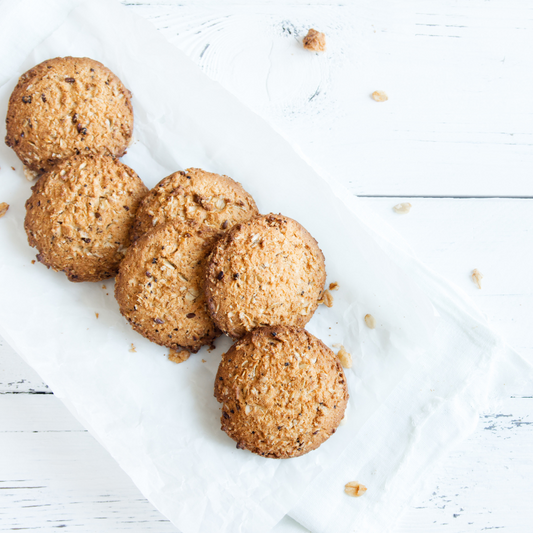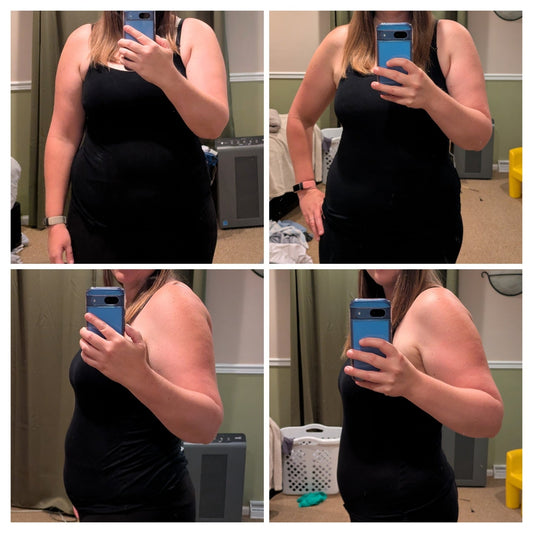The fact that more than 67% of the population have Irritable Bowel Syndrome (IBS) is enough to give you a gist of what we're about to discuss today.
Pregnancy, as beautiful of a process as it is, comes with a lot of hormonal changes, and what's the first thing in our body that happens when things shift?
Inflammation. Yep, it sucks.

Though, that's not all. If you're a soon-to-be-mom and you struggle with IBS before your pregnancy, hormonal shifts can surely take a beating at your gut condition. We've seen many women with IBS and diarrhea suddenly become easy prey to constipation, while the ones who always experience constipation have their bowel movements sorted out. It's genuinely a confusing experience, but having gone through and overseen similar experiences, we're here to help you.
I know you're short on time, so to make it easier, here's a collapsed list of things you can do to make it all better, whether you were struggling with Irritable Bowel Syndrome before or after pregnancy:
- Start a probiotic course
- Manage Stress Better
- Establish a balanced diet
- Start Exercising
- Increase your water intake
- Gradually up your daily fiber goals
Don't worry if the above tasks seem a bit daunting or out of reach for you. As you read, I'll break it down into baby steps for you to follow and increase your knowledge base on how and why IBS does what it does and how to manage IBS symptoms. Stick around, mom-to-be, and find out more!
An Overview Of IBS
If you've been lucky enough not to know what IBS is, and are wondering if it's going to be a problem in your pre-mommy nine months phase, here's a quick breakdown of one of the most functional bowel disorders.

What Is IBS?
So, to begin with Irritable Bowel Syndrome (IBS), is a digestive disorder that, according to studies, affects about 15% of the human population. However, IBS symptoms can differ from person to person, with severe abdominal pain and digestive disorders like constipation and bloating.
Though that may not seem intimidating, if you've experienced IBS symptoms at their peak, you know how bad it can be, and pair that with pregnancy, it can get pretty nasty.
Common Irritable Bowel Syndrome Symptoms
As mentioned before, Irritable Bowel Syndrome is quite a common gastrointestinal disorder that can introduce discomforting pains like abdominal pain. However, a broader list of these IBS symptoms can include : '
- Excessive burping
- Going to the bathroom all the time
- Bloating
- Uncontrolled gas
- Diarrhea
However, this isn't an exhaustive list of the symptoms, and in often cases, it's best to check in with your doctor.
IBS during pregnancy: How It Can Affect You
IBS and pregnancy, for often women, tend to overlap in a way that isn't so good.

In not-so-good cases, We've seen pregnancy make IBS symptoms worse. Most pregnant women have high progesterone, which can not only slow you down but can worsen constipation and make it even harder to control flare-ups of IBS during pregnancy.
In addition, we know that morning sickness is a big part of the journey of a pregnant woman. Though there are a lot of over-the-counter medications for that, it's essential to know that taking antiemetics (for morning sickness) and other medications can cause IBS flares and can push you into complications like ectopic pregnancy. Similarly, increased sex hormones during pregnancy can affect the gut-brain axis and make your IBS worse than it already is. Read more about this here.
How To Manage IBS Symptoms
Now that we've scared you with all the possible ways Irritable Bowel Syndrome can interfere while you're carrying your unborn baby, we make it even and tell you about the things to improve it.
We'll get into it and list the six small lifestyle changes you can make to manage IBS symptoms and take care of your digestive system during this journey.
Start Probiotics

The most important thing you can do while struggling with IBS is to start taking pre and probiotics.
Probiotics are known to dilute your IBS symptoms and, in many cases, completely relieve you of both IBS and IBD (Inflammatory Bowel Disease).
There are two ways you can go about this. Either take probiotics in the form of yogurt-based drinks or buttermilk, which can be a little slow, or take them in capsule or powder form. We recommend using IBSupport from Gistive, as it's a pre and probiotic that specifically targets the needs of people, especially women, struggling with IBS.
Though, it's important to follow up with your doctor for recommendations. Manage Stress Better Increased stress is one of the most common symptoms of IBS and inflammation, and we can thank the gut-brain axis for that.
On the same note, pain and hormonal changes can quickly induce stress in pregnant women. Yoga and other light exercises help manage stress and visibly improve IBS symptoms during pregnancy.
Follow up with your doctor for safe exercises, and start incorporating them into your daily routine.
Establish a balanced diet
Pregnant women with IBS have to make a lot of dietary changes to get the ball rolling, but even besides that, having a balanced nutritional diet is the key to a healthy life.
We recommend following a low FODMAP diet(Fermentable Short Chain Carbohydrates), which isn't a carb-free diet but restricts fatty foods and high-lactose products that can prove to be beneficial against IBS while you're pregnant.
We recommend keeping a pocket food diary or downloading an app on your phone that will allow you to easily keep track of the food you're putting in your belly and stick with the ones that make you feel good.
Start exercising
It's time to start moving, but safely. Some sort of physical activity is necessary, with or without IBS, but doctors recommend safely exercising for as much as 3 hours a week for this syndrome.
In addition, light exercises can help you alleviate any painful gastrointestinal symptoms and allow you to maintain a healthy weight during your pregnancy for a happy baby at the end of this 9-month journey.
Increase your water intake
We can't express this enough: If you're pregnant, you must increase your water intake. This is even more important if you struggle with IBS, as lower water intake paves the way for an increased risk of GI tract dysfunctions, which can be bad for your baby and IBS.
Do yourself and your growing baby a favor, and drink plenty of water daily.
Up your fiber intake
Fibers like whole grains greatly help establish healthy digestion, but you need to make sure your diet has a variety of fibers in it. For example, soluble fibers can help people with diarrhea, so it's essential to take in foods high in this type of fiber.
On the other hand, insoluble fiber is great at preventing constipation, one of the main things people with Irritable Bowel Syndrome struggle with.
Summary
Irritable Bowel Syndrome induces a range of symptoms and experiences during pregnancy. While there are still a limited number of studies in the clinical gastroenterology world to take care of this problem completely, there are many things women can do to fight IBS, which have been mentioned above.
It's also essential to keep a perspective on additional risks of IBS during pregnancy, which is why we always advise women to keep in touch with their doctors and get a clear understanding of the steps they need to take.



